The perjury trial of Barry Bonds is underway in San Francisco. Will the case involving flax seed oil go down as one of the greatest sports trials of all time? Here’s the competition of legendary cases. Murder trials with the likes of O.J. Simpson, Rae Carruth and Ray Lewis are not included because they were unrelated to sports aside from an athlete being involved. Same applies to the Mike Tyson rape trial. The Bonds case originates from an investigation into performance-enhancing drugs, so he would qualify for inclusion.
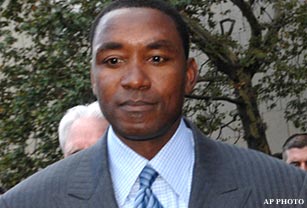
No. 10 Isiah Thomas
Knicks executive Anucha Browne Sanders sued Thomas, the club’s GM, for sexual harassment. The jury found Thomas and the Knicks liable, and the team ended up paying her $11.5 million in an out-of-court settlement. Court testimony also revealed that Stephon Marbury had sex with a team intern in the backseat of an SUV.
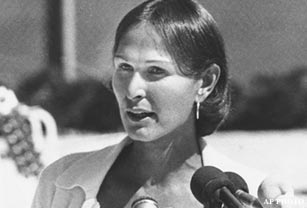
No. 9 Renee Richards
The U.S. Tennis Association barred Richards from competing in the 1976 U.S. Open after she had a sex-change operation to become a woman. She sued for the right to play and won her case in the New York Supreme Court.
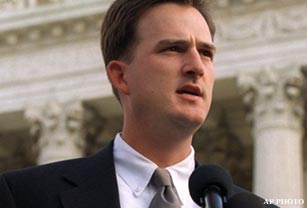
No. 8 Casey Martin
Born with a congenital blood-vessel condition in his right leg, Martin sued the PGA to ride in a cart between shots. The PGA had prevented him from riding because of its rule that required golfers to walk the course. Martin’s case reached the U.S. Supreme Court, which sided with him in a 7-2 decision in 2001.

No. 7 Alan Eagleson
Eagleson, the executive director of the NHLPA for 25 years, was found to be cheating those he was supposedly representing. In 1998, he pleaded guilty to fraud and embezzlement charges in the U.S. and Canada. Skimming of money from international tournaments and misuse of pension and disability funds were at heart of the case.

No. 6 USFL v. NFL
The upstart league, which included New Jersey Generals owner Donald Trump, filed an anti-trust suit and actually won. Unfortunately for the USFL, it had sued for $600 million but the jury awarded it just $1. Based on anti-trust law, the damages were automatically trebled to $3. Star witnesses for the USFL included Al Davis and Howard Cosell.
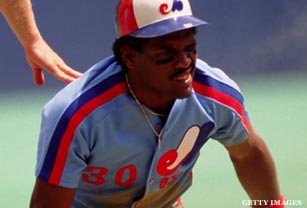
No. 5 Pittsburgh drug trial
Eleven MLB players were suspended after this cocaine distribution case in 1985. The players received immunity for their cooperation with prosecutors, and testimony included the dealing and use of drugs at the ballpark. Tim Raines testified that he slid into a base head-first because he kept cocaine in his back pocket and feared breaking the vial with a conventional slide.

No. 4 Al Davis v. NFL
Davis tried to move the Raiders from Oakland to Los Angeles in 1980. The NFL blocked him, citing its rule that 75 percent of the league’s owners had to approve a franchise reolcation. Owners had voted against him 22-0 with five abstaining. Davis filed an anti-trust suit against the league and eventually won. The Raiders moved in 1982 and won the Super Bowl in their second season in L.A.

No. 3 The Black Sox
Eight members of the Chicago White Sox, including Shoeless Joe Jackson, were accused of fixing the 1919 World Series, which Cincinnati won. The players were acquitted in court, but MLB commissioner Kenesaw Mountain Landis had enough evidence to ban the players for life. Jackson, for the record, batted .375 in the 1919 series.
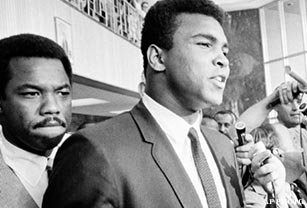
No. 2 Ali v. Army
Ali was drafted into the military in 1967. He refused, calling himself a conscientious objector based on his Islamic faith. Ali was convicted and stripped of the heavyweight championship and his boxing license. But Ali prevailed in the U.S. Supreme Court in 1971 and regained the title in 1974.

No. 1 Curt Flood
Flood filed an anti-trust suit against commissioner Bowie Kuhn in 1970 after being traded from the Cardinals to the Phillies even though his contract was up. Flood ended up losing his case to become a free agent in the U.S. Supreme Court. But the ruling weakened baseball’s reserve clause, which kept players stuck with the same team, and subsequent challenges to it ultimately led to free agency.




